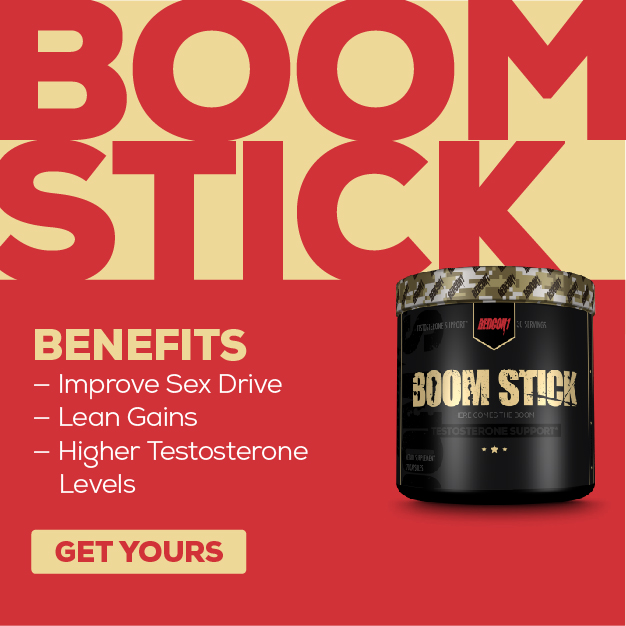
Feeling like your sex drive’s in idle mode? Well, you are not alone. Research shows that 20 percent of romantic relationships in the US are considered ‘sexless’ – which means having sex less than 10 times a year or less than once a month. And despite the notion that women are the one who often refuse sex, it is actually the men who decline.
It is often taken for granted but sex drive is a key marker of health. It involves a constellation of psychological and hormonal factors directly influenced by almost everything – genetics, gender, lifestyle, current health status, relationship and even personality. It is tricky, inconsistent, emotional and personal.
Most people think testosterone is what makes you a man. But the truth is, testosterone does not directly affect sex drive. Its dihydrotesterone (DHT).
What exactly is DHT?
Like testosterone, DHT is an androgen hormone. It is product from testosterone after conversion by 5-alpha-reductase. Unlike testosterone which mostly acts in the muscle tissues (anabolic), DHT works in the cells as a CNS stimulator. Compared to testosterone that can help build muscle mass, DHT does promote metabolism and boost strength.
How DHT Affect Your Sex Drive
While testosterone may be vital for men’s health, it is not the focal factor in the ideal male hormonal profile. In some ways, testosterone’s real benefit is by converting into a much stronger male hormone, dihydrotestosterone (DHT).
So, how powerful is DHT when compared to testosterone for boosting sex drive? According to Stephen Harrod Buhner, author of Natural Remedies for Low Testosterone, DHT is much more powerful than testosterone as it binds 10 times more to the androgen receptors, it cannot be converted to estrogen (unlike testosterone) and it can actually block aromatase enzyme – the enzyme that converts testosterone to estrogen. Hence, aside from being more potent than testosterone, DHT is powerful aromatase inhibitor too.
Having an adequate DHT in the body offers a wide range of benefits:
- Anti-depressant effect
- Increases strength
- Improved libido, mood and well-being
- A potent estrogen receptor antagonist
- Facial hair growth
- Cortisol antagonist
Unfortunately, DHT levels decline for different reasons such excessive conversion of testosterone to estrogen or low production of testosterone (low T).
The symptoms of low T vary from person to person but here are the most common signs/symptoms of testosterone deficiency.
- Decrease in sex drive/libido
- Low energy level
- Loss of muscle mass
- Erectile dysfunction
- Irritability, depression
Testosterone and DHT are not the only key players that influence your sex drive. The other one is dopamine.
How Dopamine Influence Your Sex Drive and Erectile Functioning
Dopamine is a neurotransmitter that plays a huge role in your sexual functioning. In fact, it is essential for an erection to happen. It is one of the primary chemicals that act during erection and it triggers a series of interactions among body chemicals such as testosterone, serotonin and nitric oxide.
Aside from erection, dopamine is vital for libido because it is released in the brain when a man anticipates or craves sex. Without the release of dopamine, there would be no urge or anticipation for sex and thus, no libido.
Testosterone is a basic ingredient for your sexual functions to work properly, and sufficient levels of T are needed to create a suitable environment for sexual activity to happen. Also, adequate testosterone level is required to produce dopamine. If a man is experiencing low testosterone, it means his body would not be able to produce sufficient amount of dopamine.
When responding to sex, testosterone is quite slow to act. It needs a neurotransmitter like dopamine to send signals quickly. Therefore, when a man is craving or anticipating sex, dopamine is released to send a message to the neurons. As such, dopamine is the chemical that stimulates sexual motivation.
Unfortunately, dopamine has the risk of being desensitized. This is when typical stimuli (like seeing your wife naked) cannot elicit enough sexual motivation. One reason is excessive viewing of pornographic material.
Porn overstimulates the brain’s reward system, bombarding it with high levels of dopamine until it gradually becomes less sensitive to a typical stimuli. When there is excessive dopamine, the dopamine-receiving neurons shuts down to protect from overstimulation.
This results to a non-response to dopamine or a depletion of dopamine. When this happens, you feel lazy and it becomes difficult to feel pleasure. Unfortunately, the only you can release more dopamine for you to feel pleasure is the increase in the use of porn. The only way to bring things back to normal is to wean off porn and allow your brain to adjust again.
Other benefits of dopamine to your sex drive include:
- Inhibit prolactin. Prolactin imbalance is a common cause of sexual issues in both men and women.
- Promote testosterone synthesis by stimulating gonadotropic releasing hormone (GnRH). GnRH is secreted by hypothalamus. It regulates the production of follicle-stimulating hormone (FSH) and luteinizing hormone (LH). GnRH does most of the work when it comes to increasing testosterone production. It’s the first step in the system that works for testosterone secretion.
Poor Blood Flow May Be the Culprit
Sometimes, erection problems may not be caused by low testosterone or dopamine. In addition, erection problems often don’t affect your sex drive.
If this is the case, you may be experiencing reduced blood flow in your penis. One of the common reason for poor blood flow is plaque buildup in the blood vessel walls of your penis. An erection involves your hormones, nerves, brain and blood vessels. If there’s anything that interferes in one of them, it can lead to problems of getting an erection.
Having Low Sex Drive or Problems in Erection?
When it comes to addressing issues on erection and libido, there is no one-size-fits all cure or remedy. You need to visit your doctor to be checked, or at least, get a hormone panel test. Include your neurotransmitter levels checked too. You can opt for testosterone replacement therapy or choose the natural path.
There are a number of natural testosterone boosters (e.g Tongkat Ali, Maca, Mucuna Pruriens, Panax Ginseng, Tribulus Terrestris) and nitric oxide enhancers that you can use to help address your sexual dysfunction.
I. Sexless Marriages On the Rise: 15 to 20 Percent Of Couples Have Sex No More Than 10 Times a Year. Retrieved from http://www.prnewswire.com/news-releases/newsweek-cover-no-sex-please-were-married-71373437.html
II. Buhner, S.H. Natural Remedies for Low Testosterone. Retrieved from https://books.google.com.ph/books?id=ImEoDwAAQBAJ&printsec=frontcover&source=gbs_ge_summary_r&cad=0#v=onepage&q&f=false
III. Hamdi, M.M & Mutungi, G. Dihydrotestosterone activates the MAPK pathway and modulates maximum isometric force through the EGF receptor in isolated intact mouse skeletal muscle fibres. Retrieved from http://onlinelibrary.wiley.com/doi/10.1113/jphysiol.2009.182162/abstract
IV. Ly, LP et.al. A double-blind, placebo-controlled, randomized clinical trial of transdermal dihydrotestosterone gel on muscular strength, mobility, and quality of life in older men with partial androgen deficiency. Retrieved from https://www.ncbi.nlm.nih.gov/pubmed/11549629
V. Casey, RW & Wilson, JD. Antiestrogenic action of dihydrotestosterone in mouse breast. Competition with estradiol for binding to the estrogen receptor. Retrieved from https://www.ncbi.nlm.nih.gov/pubmed/6542571
VI. Kerr, JE, et.al. Androgens modulate glucocorticoid receptor mRNA, but not mineralocorticoid receptor mRNA levels, in the rat hippocampus. Retrieved from https://www.ncbi.nlm.nih.gov/pubmed/8809674
VII. Giuliano F, Allard J. Dopamine and male sexual function. Retrieved from https://www.ncbi.nlm.nih.gov/pubmed/11805404
VII. Ben-Jonathan N1, Hnasko R. Dopamine as a prolactin (PRL) inhibitor. Retrieved from https://www.ncbi.nlm.nih.gov/pubmed/11739329
IX. S Li, G Pelletier. Role of dopamine in the regulation of gonadotropin-releasing hormone in the male rat brain as studied by in situ hybridization. Retrieved from https://academic.oup.com/endo/article-abstract/131/1/395/3034704/Role-of-dopamine-in-the-regulation-of-gonadotropin?redirectedFrom=fulltext


















